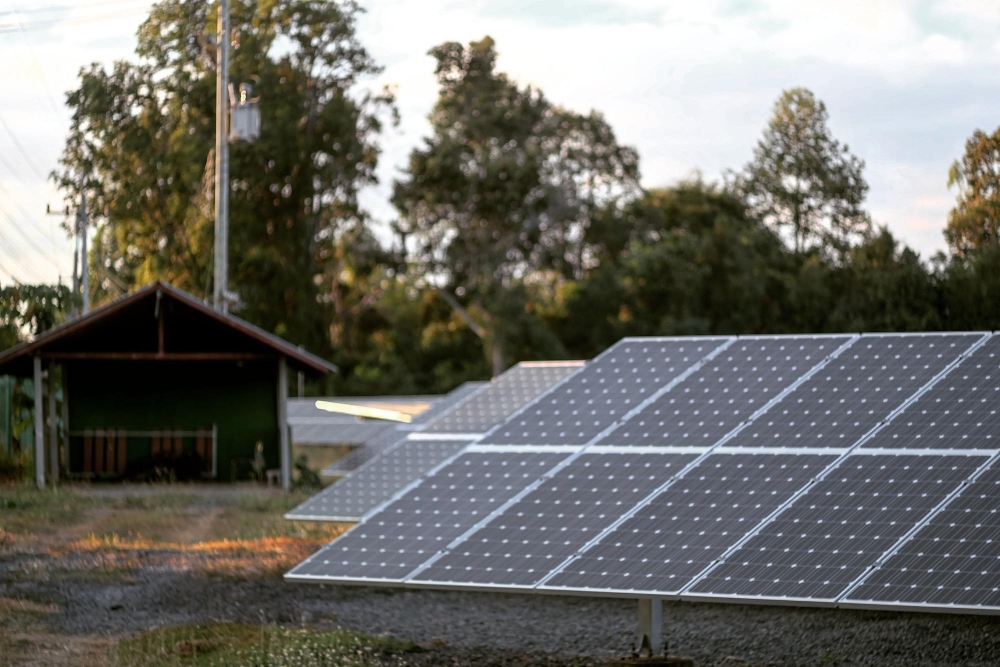In the past few decades, there has been a growing shift toward cleaner energy sources. This is because more people are becoming aware of how fossil fuel is damaging the environment. Even businesses all over the globe have realized this and are now providing services and products that promote a positive impact on the environment. With that, comes solar power for homes. The now preferred option of most homeowners aiming to lessen or erase their carbon footprint and energy costs.
Research, including studies by the Intergovernmental Panel on Climate Change (IPCC), points out the critical need to transition away from fossil fuels to mitigate climate change impacts. You see, solar panels are capable of generating clean electricity directly from sunlight. While the environmental advantages of solar energy, such as reduced greenhouse gas emissions and improved air quality, are well-established, there is still a need to go into detail about the less visible aspects of the industry: labor conditions and ethical concerns.
A recent study published in Nature Energy highlights the rapid expansion of the global solar industry. This is driven by technological advancements and decreasing costs. That being said, this fast growth has raised concerns about working conditions in solar panel manufacturing plants. To find out more about these issues, let’s discuss it further in this article.
Labor Practices in the Solar Power Industry
The solar power industry, while promising a clean energy future, faces significant challenges in labor practices. A primary concern lies in the manufacturing process, often concentrated in regions with lax labor regulations. A report by the Australian Strategic Policy Institute (ASPI) highlighted the prevalence of forced labor in the Xinjiang Uyghur Autonomous Region of China, a major hub for solar panel production. These circumstances, which are characterized by poor pay, long hours, and dangerous surroundings, place doubt on the industry's sustainability claims.
Besides manufacturing, the installation phase also presents labor-related issues. A study by the National Renewable Energy Laboratory (NREL) found that solar installers often face physical risks, such as falls and electrical shocks, due to the nature of their work. Effective legislation, transparent supply chains, and equitable labor practices are necessary to tackle these labor difficulties and guarantee that the shift towards sustainable energy does not compromise worker welfare or human rights.
Ethical Manufacturing of Solar Panels
A complicated topic with wide implications is the ethical manufacturing of solar panels. The production process involves a range of materials, including silicon, which requires substantial energy to refine and can generate harmful byproducts. Additionally, the extraction and processing of other components, such as metals like cadmium and lead, pose environmental risks if not handled responsibly.
A study was published in the Journal of Cleaner Production stating just how important it is to adopt eco-friendly practices. This is throughout the solar panel lifecycle to minimize its environmental footprint. Furthermore, the disposal of end-of-life solar panels is another critical concern.
To ensure ethical manufacturing, the solar industry must prioritize the use of recycled materials, invest in clean production technologies, and establish responsible recycling programs. They can help guarantee that electricity is produced in a way that is truly clean, through the implementation of sustainable practices.
Environmental Considerations
While often commended for its clean energy generation, solar panels are not without environmental considerations. Large-scale solar installations require significant land use, potentially impacting ecosystems and wildlife habitats. A study by the National Renewable Energy Laboratory (NREL) emphasized the importance of careful site selection and reduction measures to minimize these impacts.
Additionally, the production of solar panels involves the use of various materials, some of which can be harmful to the environment if not properly managed. For instance, the extraction of silicon can be energy-intensive and generate waste products. Not to mention, the disposal of end-of-life solar panels poses challenges due to the presence of hazardous materials. Therefore, the solar industry must address these environmental concerns by prioritizing sustainable practices. This includes responsible land use, material sourcing, and recycling initiatives.
The Role of Certification and Standards
Certification and standardization provide an integral function in guaranteeing the quality, safety, and reliability of solar products and systems. Organizations like the International Electrotechnical Commission (IEC) and the International Organization for Standardization (ISO) develop rigorous standards for solar components and systems.
Furthermore, certifications, such as IEC 61215 for photovoltaic modules, provide independent verification that products meet specific quality and safety criteria. These certifications protect consumers while developing trust in the industry. Moreover, standardized testing protocols enable accurate comparisons between different products, helping out consumers to make informed decisions.
The Path to a Cleaner and Fairer Solar Industry
Addressing labor and ethical challenges within the solar industry needs a collaborative approach between manufacturers, installers, consumers, and policymakers. Prioritizing human rights, environmental stewardship, and transparency is necessary to maintain the values of justice and sustainability while realizing the full potential of solar energy.
While solar power offers a promising pathway to a greener future, it is imperative to acknowledge the human impact associated with its production and installation. Informed consumer choices and a demand for accountability can significantly contribute to a solar industry characterized by both cleanliness and fairness.
Key Takeaway
Solar power for homes offers a promising path towards reduction of carbon emissions. That being said, it is imperative to address the labor practices and ethical considerations embedded within its supply chain. From the extraction of raw materials to the installation of solar panels, the industry must prioritize human rights, fair wages, and safe working conditions.
Additionally, ethical manufacturing processes and the responsible management of solar panel waste are needed to protect our environment. Through certification and standardization, product quality, safety, and consumer protection is guaranteed.



